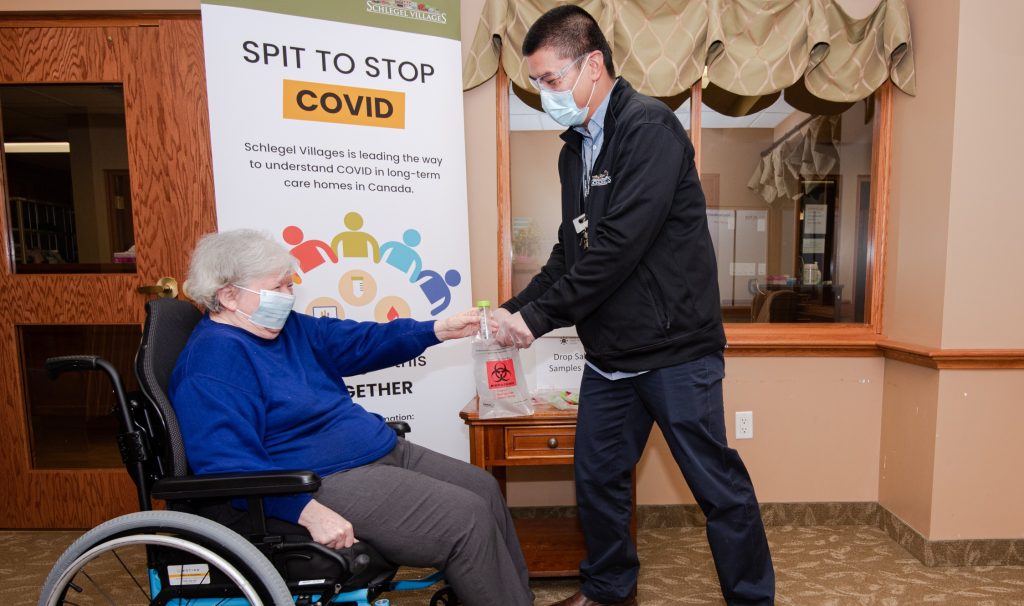Science for real-time impact

Jessica Breznik has researched everything from rainbow trout to how microbes in pregnancy affect infants. After more than a decade in government and academic labs, Breznik understands it can take years for research findings to make their way to the general public.
That all changed dramatically during the pandemic when the urgency for solutions meant immunologists like Breznik started working in real-time.
“We’re generating data and sharing it with public health officials in real-time so it can support policy decisions,” said Breznik, a post-doctoral fellow in McMaster University’s Department of Medicine. “We’re not holding on to it, waiting for publication. We don’t change how the science is done, just how we report our findings.”
Breznik is part of a team with McMaster’s Global Nexus for Pandemics and Biological Threats researching COVID-19 immunity in Ontario residents living in long-term care homes. The project is co-led by Dawn Bowdish, a Professor in the Department of Medicine and Canada Research Chair in Aging & Immunity, and Andrew Costa, the Schlegel Research Chair in Clinical Epidemiology & Aging and an Associate Professor in the Department of Health Research Methods, Evidence, and Impact. With funding support from the Canadian Institutes of Health Research COVID-19 Immunity Task Force, the team broadly examines what factors predict whether older adults in long-term care are going to be able to fight a COVID-19 infection.
In 2021, the team found a significant drop in protective antibody levels for some residents three to five months after their second vaccine dose. These and other ongoing findings have been shared quickly, prompting Ontario policy makers to offer a third, fourth and fifth dose to long-term care residents – policies credited with protecting the health of older residents and saving countless lives.
“Our research shows the importance of people following Public Health guidelines and keeping their COVID-19 vaccinations up to date, because it provides optimal immune protection and reduces their likelihood of severe infection. We can show them what their antibody levels and cellular responses look like over time,” said Breznik. “I really enjoy helping people make those connections that will ultimately help them decide to actively protect their health in a very important way.”
Teaching emerging scientists
Breznik was drawn to the COVID-19 study because of the opportunity to make an impact and she hopes to share her pandemic learning with students at McMaster as the course coordinator and lecturer for an advanced immunology course in the upcoming Winter 2023 term.
Breznik, who also did her PhD at McMaster, appreciates the collaborative environment and great mentors at the Global Nexus. “It’s a really welcoming, collaborative environment with open lab space, so you can see what everyone’s doing,” said Breznik. “It also means that we share equipment and materials so we can do things that you wouldn’t be able to do in a more traditional lab because of the cost of using certain types of equipment.”
Breznik and the team are currently studying immunity in older adults after bivalent COVID-19 vaccine doses and will be sharing their findings soon. She is concerned about the coming months for Ontario’s long-term care residents and children and especially with the perception among many that the pandemic is over.
Breznik added, “Overall, I’m pretty optimistic about the future because of the effectiveness of public health measures, all the data we’ve gathered, and the strides we’ve made in vaccination and understanding the virus, but it’s important that we all continue to make decisions that protect the most vulnerable members of our society.”
In the News
